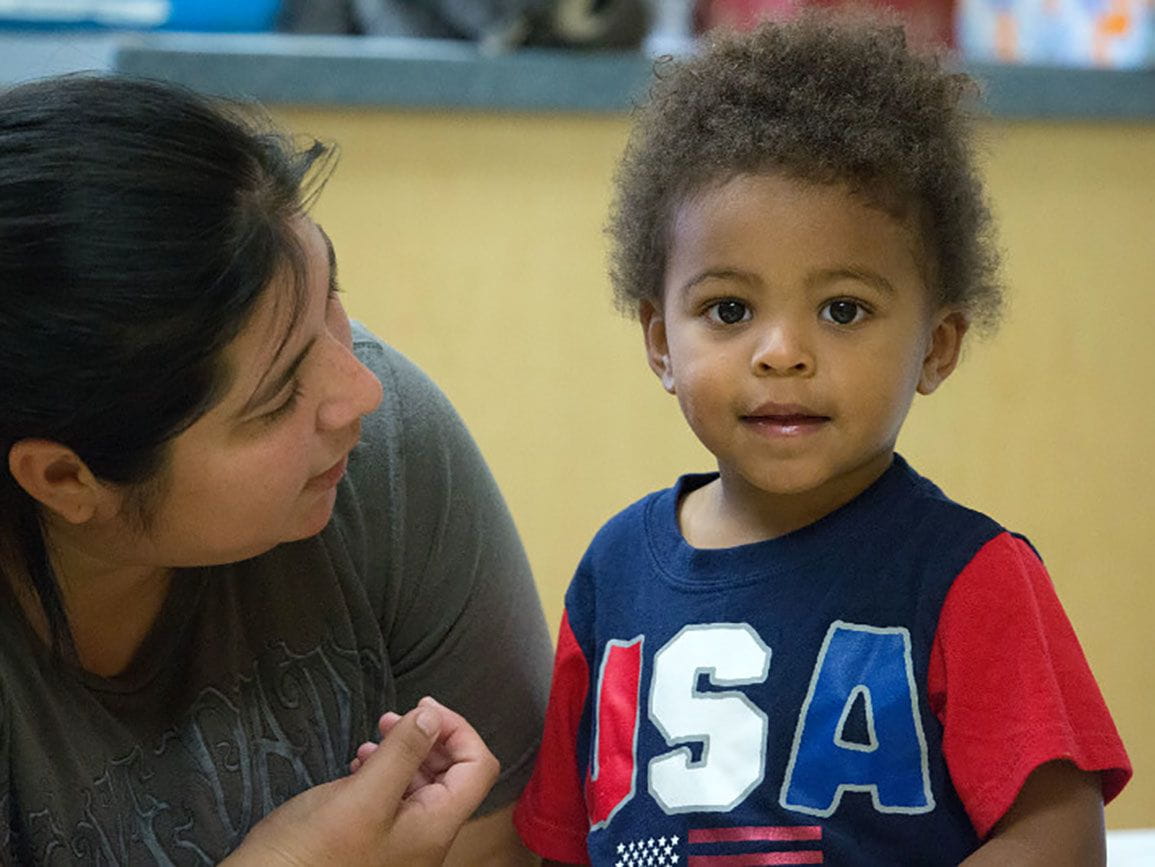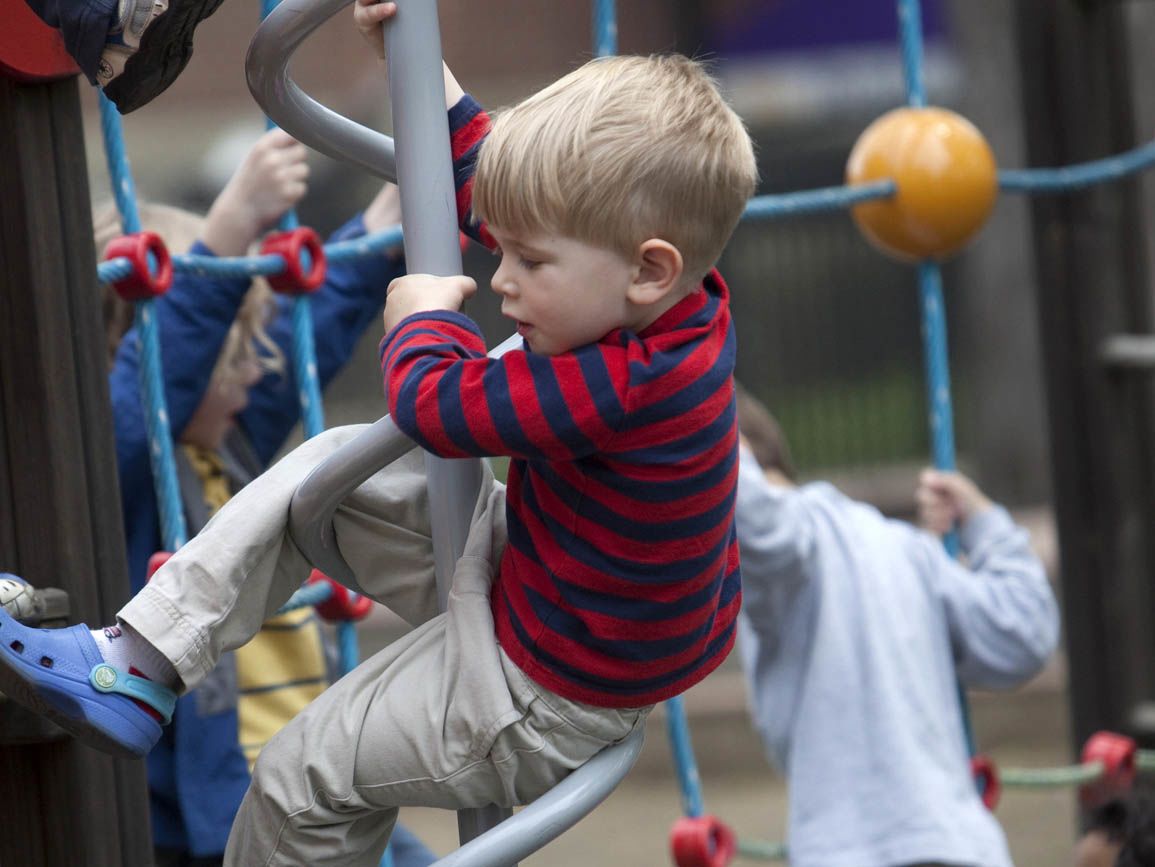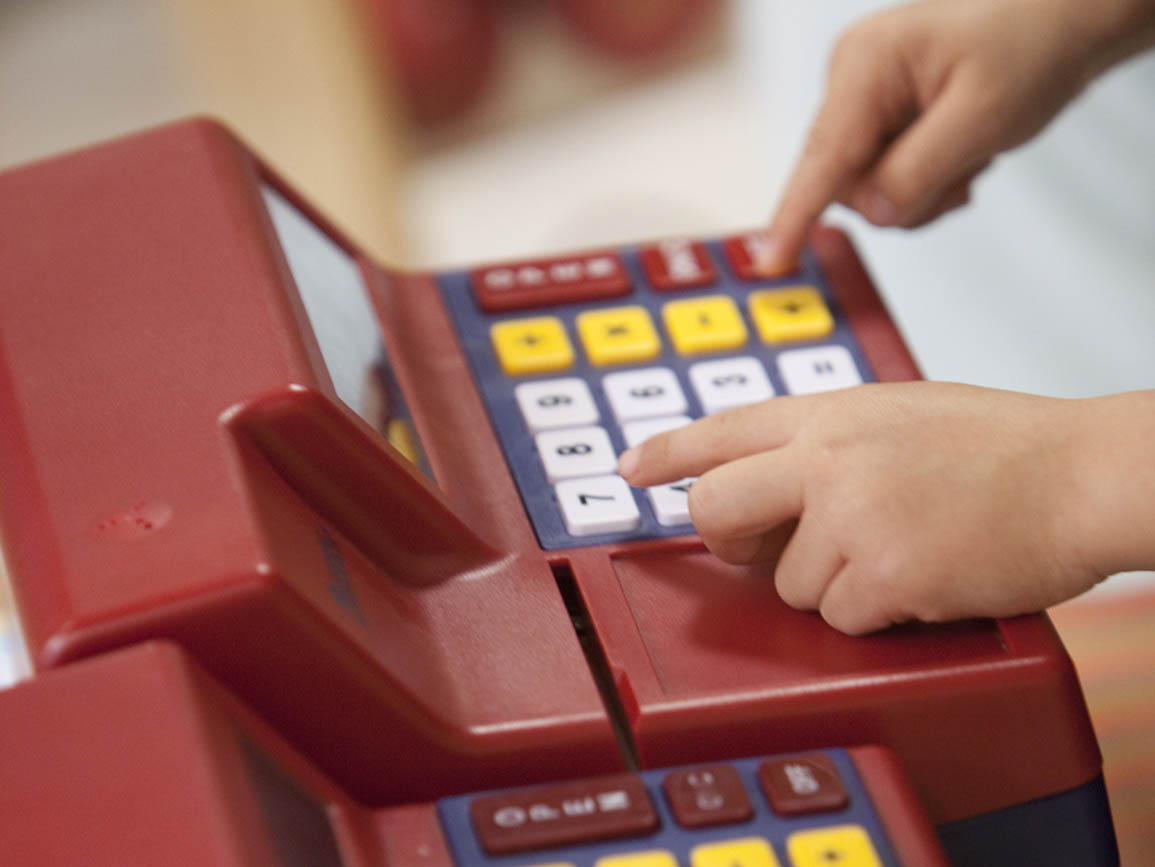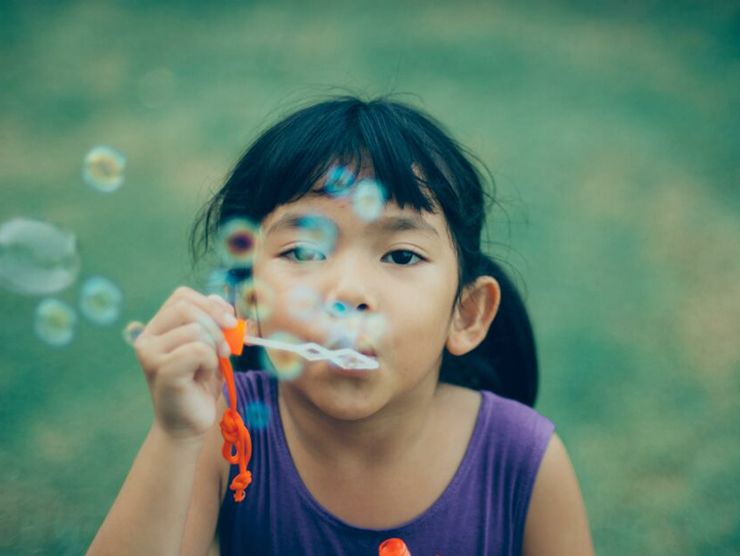Starting preschool marks the beginning of a new phase in your child's development. Even if your child has previously attended a toddler program, you may be wondering, "Is my child ready for preschool?" You and your toddler may be feeling a mix of emotions: excitement, apprehension, and even sadness as babyhood disappears. In the next few months, your preschooler will make new friends, learn new skills, and gain confidence and independence. This early start sets your child on the path for later school success.
Preparing your child academically for preschool may be simpler than you think; chances are you’re already doing many things to prepare your child. By simply reading, playing, and exploring together, you are helping your child get ready for preschool activities. Go for nature walks, work on puzzles, play board games, or visit the library. Offer your child a mix of active, playful experiences and quieter, more focused activities. Paint, work with play dough, or string beads together to build fine motor skills.
Emotionally preparing your child—and yourself—for preschool might take more intentional effort. Below are a few ideas to smoothly make the transition.
Preparation Tips Before Preschool Starts
- Visit the preschool. Visit your child's classroom and meet the preschool teacher a few days ahead of time. Show your child the class schedule if one is posted. Talk about what to expect during each portion of the day. Show your child where they will keep their backpack and personal things.
- Act it out. Use your child's penchant for pretend play to prepare him for preschool. Pretend that you're going to school, hanging up your backpack, and sitting down for group time. Play games, read stories, and make a simple snack. Teach your child a few basic social skills. Talk about how to get someone's attention, take turns, or join in play. Use puppets to roleplay.
- Work on self-help skills. Going to preschool marks a big developmental leap for your child and independence will become a larger focus. Help your toddler master self-help skills like washing hands, using the toilet, putting shoes and socks on, and using utensils at the table.
- Express and acknowledge feelings. Beginning preschool is an exciting adventure, but it's normal for both of you to have feelings of anxiety. Encourage your child to express those feelings, listen closely, and acknowledge your child's fears. At the same time, acknowledge to yourself your own feelings of ambivalence or anxiety. You might notice changes in your child's behavior as they work through their feelings. Children often regress in one area as they make developmental growth in another. For example, when facing a transition, children sometimes regress in toilet training or become less independent. With nurturing support, these behavior changes are only temporary.
- Shift your schedule. Before the first day of school, gradually make any necessary changes in your routines, such as an earlier dinner or bedtime. Limit media. Offer a healthy breakfast and spend time outdoors. Developing consistent, predictable routines a few weeks before school starts will make the transition much smoother.
Preparation Tips for the First Few Days of Preschool
- Get organized. As the first day of preschool approaches, make sure you have clothing, shoes, and backpacks organized and labeled. Turn in all forms to the school. Stock up on healthy snack and lunch foods.
- Stay with your child for 15 to 20 minutes on the first day of preschool. Point out the classroom activities and help your child get involved. Help your child meet a few other children. When it's time to go, offer a hug and a positive, matter-of-fact attitude. "I know that you're going to have a good time today. I'll be back to get you at the end of the day."
- Stay involved. Separating from parents is a major milestone. Even if your child has been attending an early childhood program or toddler program, a new classroom and teachers may bring anxiety once again. Children develop independence at different rates with some children being able to separate easily from parents while others need extra support. It’s important to find the right balance for a child to develop independence. Talk with the teacher if your child is struggling with saying goodbye to you. Teachers have a lot of experience with this and can help develop a plan, which might include bringing a photo or "lovey" to school or temporarily shortening the day. Always tell your child when you're leaving, rather than sneaking out, and be prompt for pick-up at the end of the day.
Preschool is a time of tremendous growth. With just a little preparation, you can make this transition a confidence-building experience for both you and your child.





